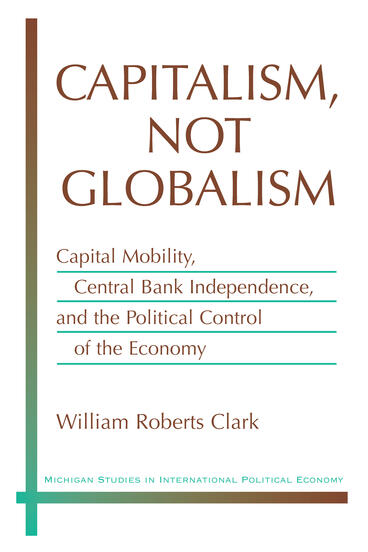Capitalism, Not Globalism
Capital Mobility, Central Bank Independence, and the Political Control of the Economy
An original, empirically supported explanation of the domestic consequences of recent changes in the global economy
Description
Capitalism, Not Globalism shows that, while much has been made of recent changes in the international economy, the mechanisms by which politicians control the economy have not changed throughout the postwar period. Challenging both traditional and revisionist globalization theorists, William Roberts Clark argues that increased financial integration has led to neither a widening nor a narrowing of partisan differences in macroeconomic polices or outcomes. Rather, he shows that the absence of partisan differences in macroeconomic policy is a long-standing feature of democratic capitalist societies that can be traced to politicians' attempts to use the economy to help them survive in office.
Changes in the structural landscape such as increased capital mobility and central bank independence do not necessarily diminish the ability of politicians to control the economy, but they do shape the strategies they use to do so. In a world of highly mobile capital, politicians manipulate monetary policy to create macroeconomic expansions prior to elections only if the exchange rate is flexible and the central bank is subservient. But they use fiscal policy to induce political business cycles when the exchange rate is fixed or the central bank is independent.
William Roberts Clark is Assistant Professor, Department of Politics, New York University.
William Roberts Clark is Associate Professor of Political Science and Faculty Associate at the Center for Political Studies, University of Michigan.

